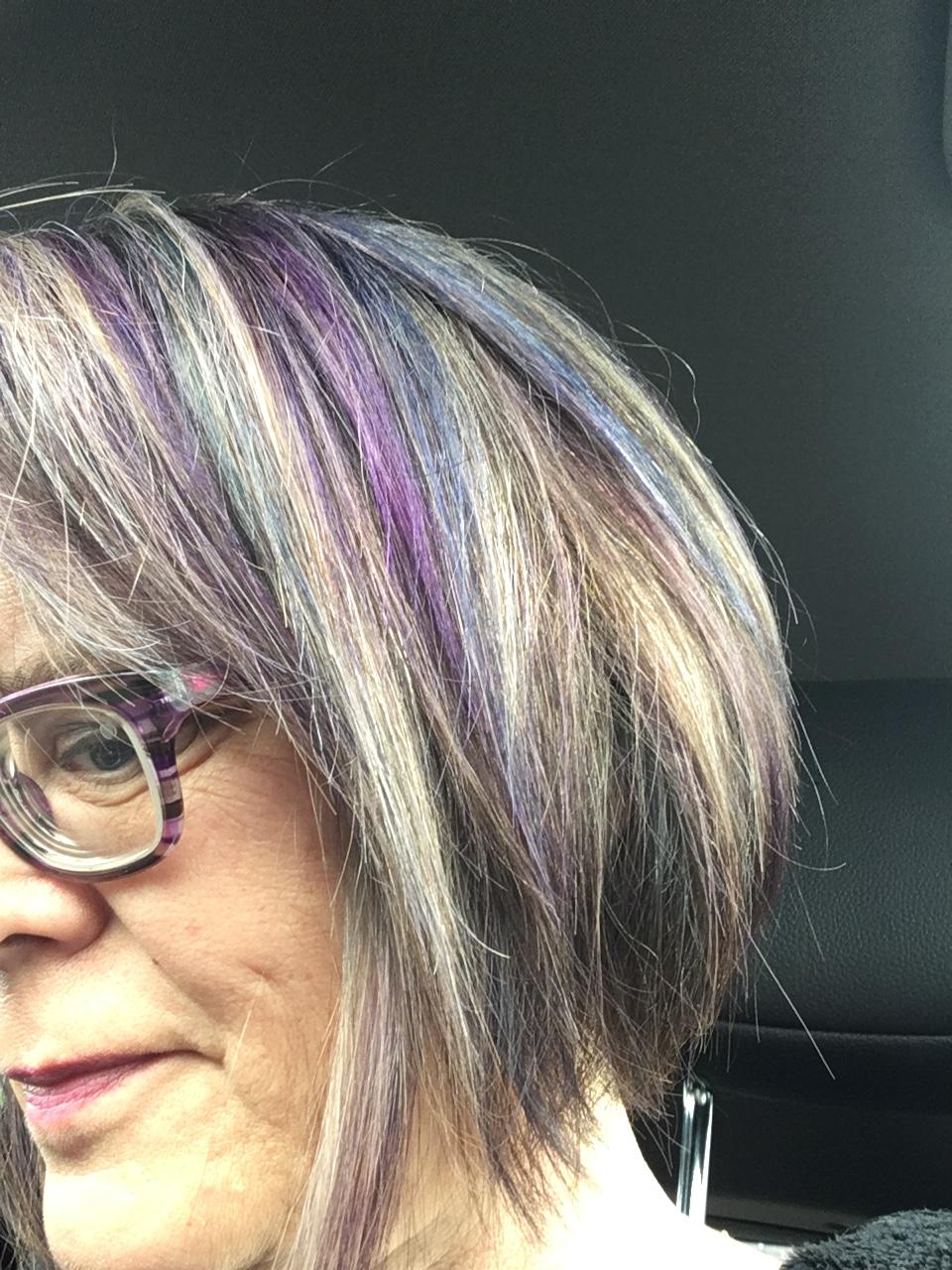Meet Teaching Artist Tamara Hogan


Tamara Hogan is the award-winning author of The Underbelly Chronicles paranormal romance series. Both traditionally and indie-published, Tamara has broad industry knowledge and is a frequent writing conference instructor and speaker. An English major by education and a software developer/process engineer by trade, she recently stopped telecommuting to Silicon Valley to teach, edit, and write full-time. For more information, visit her on the web at tamarahogan.com.
To see Tamara's current class list, visit her artist bio page.
***
When did you start teaching? What path—career or otherwise—brought you here?
As an English/creative writing major who went into software engineering via an interest in language, I always told myself I’d write a novel someday. Over the years, I took a lot of classes and workshops, writing a lot but finishing nothing. Fast-forward twenty years, and “someday” became “now,” as I finally got an idea that interested me enough to finish my first manuscript and plan a paranormal romance series to follow. I wrote in the early mornings, telecommuted to my tech job in Silicon Valley during the day, then queried agents and editors at night. That manuscript sold in a three-book deal, and for several years, I juggled two demanding careers—until burnout became a real concern. I took a deep breath, quit my day job, and started teaching at the Loft soon after as part of my arts-focused “second act.”
How would you describe your teaching style?
My teaching style tends to be matter-of-fact and practical—very light on inspiration and “the muse” and heavy on craft and process. I like to help writers find answers to questions such as “I have an idea for a story. What do I do next?” Or “I started my novel, but I’ve stalled out and I don’t know why.” In my experience, the answers to these questions can often be found by exploring characterization, setting/world, plot, and story structure. These craft components are essential, foundational, and I believe focusing on them, especially early on in a project, can help writers clarify important aspects of their story then make a satisfying level of progress.
When it comes to imagining and creating classes, where do your ideas come from? What in particular inspires you?
Over the years, I’ve had many opportunities to read and offer feedback on unpublished genre fiction manuscripts. What I’ve observed is that if something feels like it's missing from the manuscript, it tends to be related to characterization, setting/world, plot, or story structure. All of my workshops address these essential elements in some way, shape, or form. Having worked in technology for over twenty-five years, I have a very strong analytical/process orientation, and all of my workshops are conceived and developed through that perspective. Whether the workshop is targeted toward beginning writers or published novelists, supplying practical information about how to translate ideas to the page is my goal.
What's the ideal environment for your classroom? What atmosphere are you hoping to establish?
I often work with people who are just starting to write novels, so it’s very important to me that I create a no-pressure environment and meet them where they’re at. With a combination of lecture, Q&A, and in-class writing exercises, I try to give writers opportunities to learn new craft information, apply it to their own project, then discuss if desired. As a former STEM worker, one of my teaching goals is to try to communicate to analytical writers that they already possess so many of the skills necessary to make progress on their creative writing projects. Seriously, SO much translates! I feel most writers, regardless of their analytic/inspirational orientation, can benefit from looking at novel-writing through a process lens, at least occasionally. It’s never a waste to evaluate whether our work methods are producing the results we want—and changing things up if the answer is “no.”
Regardless of what your class is specifically focusing on, what's the main goal you have for your students?
A lot of Loft students already know they’re good writers. In my workshops, my goal is to provide good writers with information and tools they can use to write a good story—which is a different matter entirely. Whether pursuing publication or not, I want the writers who take my workshops to take away practical information they can use to move forward with their project. My more meta goal is to nurture a greater acceptance of, and appreciation for, genre fiction. Too many students enter my workshops feeling beat up by undergrad or MFA writing programs, judged because they wanted to write “commercial trash” rather than literary fiction. Sadly, this bias still persists: in classrooms, in review spaces, in the media, and within the publishing industry itself. This attitude has snuffed out countless writing careers before they could ever spark to life. I mourn the stories never written, the tales never told, and celebrate every word that leaps from a writer’s imagination to the page.
What are goals you have for yourself? These could be teaching goals, writing goals, career goals, community goals, etc.
My primary goal, first and foremost, is to live a balanced life. As a writer with chronic health problems, self-care is baked into my DNA, and when every daily activity draws against a finite bank of energy, one learns very quickly which activities are worth doing and which are not. I’ve learned how to say no and make it stick, and “the grind”—over-extending myself on a regular basis—no longer has a place in my life. Career-wise, this means I publish less frequently than most writers in my genre, so I’ve done a lot of work defining what success means to me within this framework. My working definition of success involves finding satisfaction in the process—which makes a lot of sense for a process-oriented person, no? If I’m satisfied with what I produce more days than not, everything else is gravy.
What have been some of your own favorite educational experiences?
When I was in 10th grade, author and poet Mary Logue did a short residency at my rural high school as part of what was then called the Poets in the Schools program. Ever a voracious reader, and with a budding interest in writing, Logue was the first person I ever met who wrote creatively for a living. Her visit made me believe such a thing might be possible for me, if I worked and studied hard enough. Workshops by Loft instructors Mary Carroll Moore and Mary Gardner were formative for me, helping me flex my writing muscles during times I didn’t yet know WHAT I wanted to write, if that makes sense.
To you personally, what is the most important part of the literary arts?
I feel that books are empathy engines, providing readers with intimate access to others’ experiences, environments, and emotions. As a reader, I value this experience immensely. As a writer, I’m humbled trying to create this experience for others.
